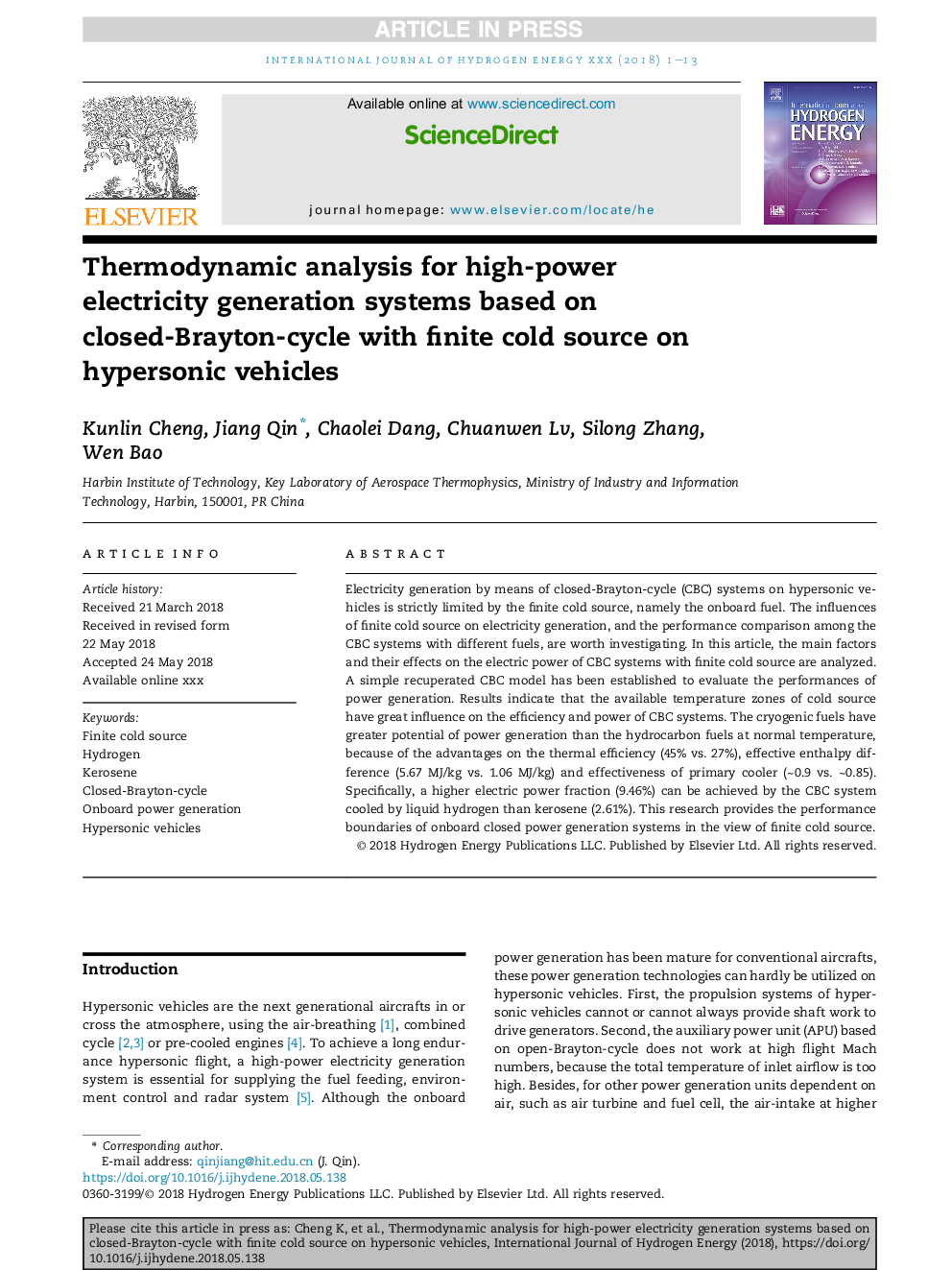| Article ID | Journal | Published Year | Pages | File Type |
|---|---|---|---|---|
| 7705428 | International Journal of Hydrogen Energy | 2018 | 13 Pages |
Abstract
Electricity generation by means of closed-Brayton-cycle (CBC) systems on hypersonic vehicles is strictly limited by the finite cold source, namely the onboard fuel. The influences of finite cold source on electricity generation, and the performance comparison among the CBC systems with different fuels, are worth investigating. In this article, the main factors and their effects on the electric power of CBC systems with finite cold source are analyzed. A simple recuperated CBC model has been established to evaluate the performances of power generation. Results indicate that the available temperature zones of cold source have great influence on the efficiency and power of CBC systems. The cryogenic fuels have greater potential of power generation than the hydrocarbon fuels at normal temperature, because of the advantages on the thermal efficiency (45% vs. 27%), effective enthalpy difference (5.67Â MJ/kg vs. 1.06Â MJ/kg) and effectiveness of primary cooler (â¼0.9 vs. â¼0.85). Specifically, a higher electric power fraction (9.46%) can be achieved by the CBC system cooled by liquid hydrogen than kerosene (2.61%). This research provides the performance boundaries of onboard closed power generation systems in the view of finite cold source.
Keywords
Related Topics
Physical Sciences and Engineering
Chemistry
Electrochemistry
Authors
Kunlin Cheng, Jiang Qin, Chaolei Dang, Chuanwen Lv, Silong Zhang, Wen Bao,
